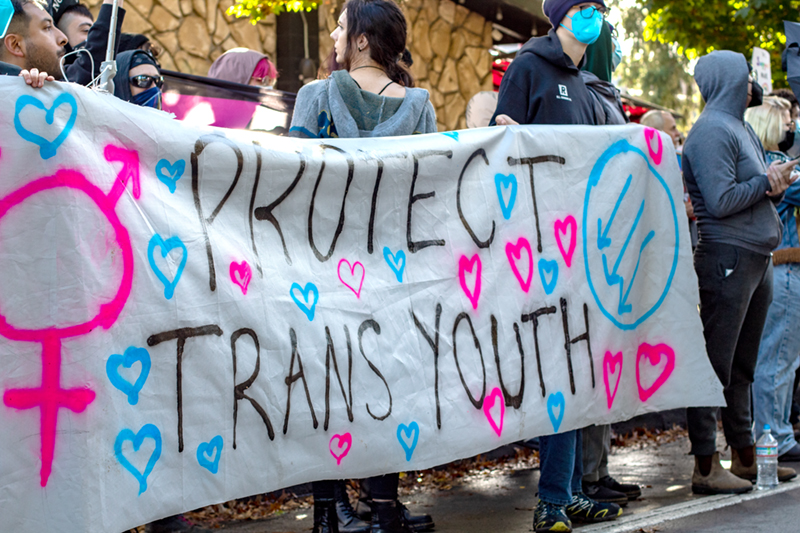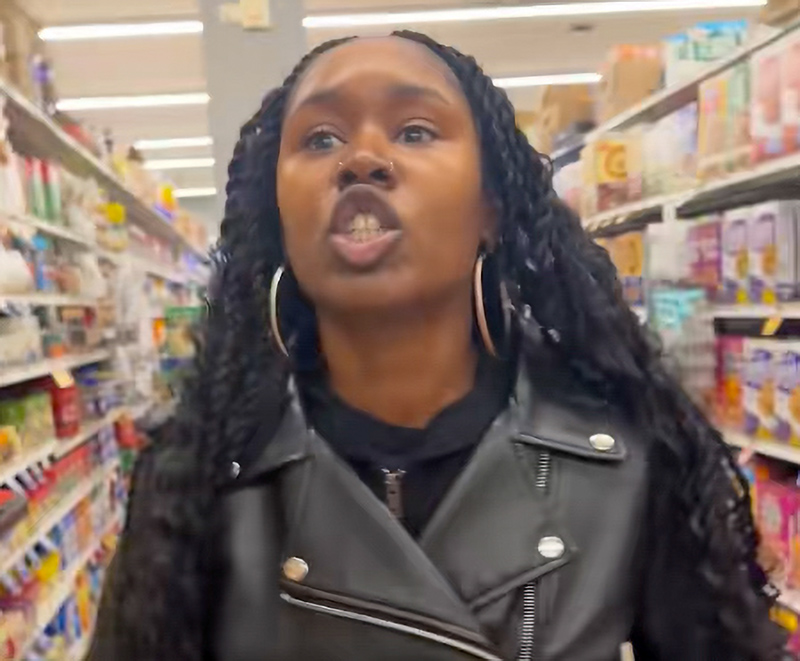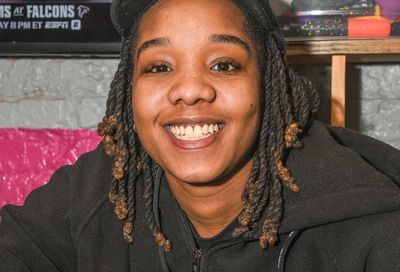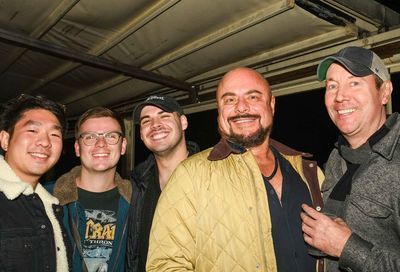Namibia’s High Court Decriminalizes Homosexuality
The landmark ruling overturned two colonial-era laws that criminalized same-sex conduct, calling them unconstitutional.

In a landmark and historic ruling, Namibia’s high court overturned two colonial-era laws that criminalize consensual sex between male partners as unconstitutional.
Friedel Dausab, a Namibian LGBTQ activist, filed the lawsuit challenging the anti-sodomy laws, assisted by the British-based nongovernmental organization Human Dignity Trust.
Dausab claimed that the laws criminalizing same-sex relations and other forms of sexual conduct — which are rarely enforced but remain on the books — are discriminatory and infringe on Namibian citizens’ fundamental rights and freedoms.
Attorney General Festus Mbandeka, who defended the laws on the government’s behalf, argued that public opinion in Namibia hasn’t evolved to the point that lawmakers were ready to repeal the anti-sodomy laws. Mbandeka also argued that the constitution doesn’t expressly prohibit discrimination on the basis of sexual orientation.
In a unanimous decision, Judges Nate Ndauendapo, Shafimana Ueitele, and Claudia Claasen sided with Dausab, finding that the country’s anti-LGBTQ laws unfairly differentiate between men and women (criminalizing only male same-sex relations) and between gay and heterosexual males.
The judges also invalidated sections of the country’s Immigration Control Act and the Defence Act that criminalize homosexuality and condemned views that label same-sex acts an “abominable vice,” stating that such a characterization was based on prejudice and unfounded societal biases.
“We are not persuaded that in a democratic society such as ours…it is reasonably justifiable to make an activity criminal just because a segment, maybe a majority, of the citizenry consider it to be unacceptable,” the judges wrote in their ruling.
“This is good for young LGBTQ people to know that their love is not a crime,” Dausab told Reuters following the court’s decision. “It is a great day for Namibia.”
Human rights advocates argued that, even though Namibia’s laws prohibiting sodomy and “unnatural sexual offenses” were rarely enforced, their existence left gay and bisexual men living in fear of arrest.
Téa Braun, the chief executive of Human Dignity Trust, said the success of Dausab’s lawsuit could help revive efforts to repeal other criminalization laws across Africa.
“The message that the court sent today is that we have every right to belong and exist in this country and that the constitution protects us,” said Omar van Reenen, the co-founder of the Namibia Equal Rights Movement.
The government is still considering the ruling and hasn’t decided whether to appeal it, Gladice Pickering, the justice ministry’s executive director, told Time magazine.
The decision marks a significant victory for the LGBTQ community in the southern African nation and runs counter to recent trends in other sub-Saharan countries, where officials have sought to toughen penalties against LGBTQ people, particularly men, who engage in same-sex relations. In sum, more than half of Africa’s 54 countries have some law criminalizing the practice.
Last year, Uganda approved a punitive law that punishes same-sex conduct with long prison sentences, and, in cases of “aggravated homosexuality” — such as seducing or coercing someone to engage in same-sex acts — with the death penalty.
In response to a legal challenge, the country’s Constitutional Court ultimately scuttled some provisions of the law, but kept the overall measure intact.
Meanwhile, in Ghana, lawmakers passed a law that penalizes people who identify as LGBTQ with up to three years in prison. That law is currently being challenged in court.
Lawmakers in other nations, including Tanzania and Kenya, have also floated imposing harsher penalties for engaging in same-sex relations or “promoting” homosexuality.
Support Metro Weekly’s Journalism
These are challenging times for news organizations. And yet it’s crucial we stay active and provide vital resources and information to both our local readers and the world. So won’t you please take a moment and consider supporting Metro Weekly with a membership? For as little as $5 a month, you can help ensure Metro Weekly magazine and MetroWeekly.com remain free, viable resources as we provide the best, most diverse, culturally-resonant LGBTQ coverage in both the D.C. region and around the world. Memberships come with exclusive perks and discounts, your own personal digital delivery of each week’s magazine (and an archive), access to our Member's Lounge when it launches this fall, and exclusive members-only items like Metro Weekly Membership Mugs and Tote Bags! Check out all our membership levels here and please join us today!


























You must be logged in to post a comment.